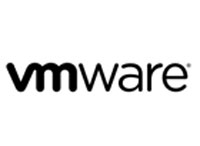09 Oct 2014
New features of vSphere 5.5 and differences between vSphere 5.5 and vSphere 5.1
Some of the key differences between vSphere 5.1 and vSphere 5.5
| Features | vSphere 5.1 | vSphere 5.5 |
| Physical RAM per host | 2 TB | 4 TB |
| Physical CPUs per host | 160 | 320 |
| Maximum vCPUs per host | 2048 | 4096 |
| VMDK Size | 2TB | 62 TB |
| Max Size of Virtual RDM | 2TB | 62 TB |
| VM Hardware Version | 9 | 10 |
| ESXi Free version RAM limit | 32 GB | unlimited |
| ESXi Free version maximum vSMP | 8-way virtual SMP | 8-way virtual SMP |
| 16 GB fibre channel End-to-End support | Support to run these HBAs at 16Gb. However, there is no support for full, end-to-end 16Gb connectivity from host to array. | Yes |
| vCenter Server Appliance With Embedded Database support upto |
5 Hosts and 50 Virtual Machines |
100 Hosts and 3000 Virtual Machines |
| CPU C-state Enhancement | Host power management leveraged only the performance state (P-state), which kept the processor running at a lower frequency and voltage |
Processor power state (C-state) also is used, providing additional power savings and increased Performance |
| Multiple point-in-time replicas | vSphere Replication kept only the most recent copy of a virtual machine |
Version 5.5 can keep up to 24 historical snapshots |
Some of the features supported/available from vSphere 5.5
| Features | vSphere 5.1 | vSphere 5.5 |
| VMware VSAN support | No | Yes |
| 40 GBps physical Adapter support | No | yes |
| APP HA | No | Yes |
| vFlash Read Cache support | No | Yes |
| Expanded v-GPU and G-GPU support | only NVIDIA | NVIDIA, AMD and Intel GPU |
| Microsoft Windows 2012 Cluster Support | No | Yes |
| PDL (Permanent Device Loss) AutoRemove | No | Intoduced in vSphere 5.5 |
| Graphics acceleration support for Linux Guest OS |
No | Yes |
| Hot-pluggable SSDPCIe devices | No | Yes |
| Support for Reliable Memory Technology | No | Yes |
| LSI SAS support for Oracle Solaris 11 OS | No | Yes |
| vSphere Big Data Extensions | No | Yes |
| SATA-based virtual device nodes via AHCI (Advanced Host Controller Interface) support |
No | Yes (Support upto 120 devices per VM) |
| Improved LACP Support | one LACP group per distributed switch |
Supports up to 64 |

